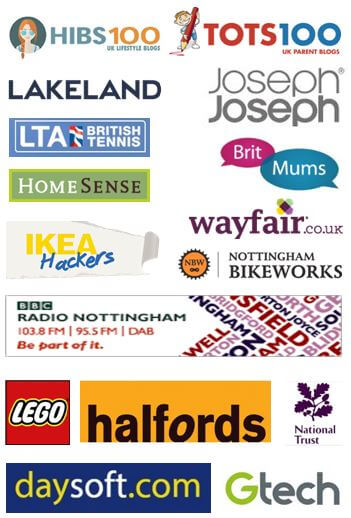How short-termism is damaging your home finances (and what to do about it).
I’m sure I’m not the only one who feels like I’ve blinked and missed two months of the year already. Maybe it’s an age thing, but I’m convinced the years are speeding up! 2018 seems to be hurtling along at break-neck speed, with Easter just around the corner. What’s more, in this increasingly fast-paced society of ours, time is of the essence. People are looking for a quick-fix and instant results in a ‘buy now, pay later’ marketplace. We are pressured to get things done faster and better, and often our attention is focused on the short-term. This can be a problem, since often we’ll neglect the long-term and unwittingly set ourselves up for future disappointment. Unfortunately, this short-termism will reflect in all areas of life, most notably in financial management.
How often do you realize you’ve wasted ‘big money’ because you were obsessed with saving pennies? This article will run you through a few everyday scenarios where you can save a lot of money in the long run by improving your sense of perspective and judiciously spending money in the short-term.
1. Start planning ahead for next month.
I know how hard it is to take your foot off the pedal. We are so busy fighting our way through today’s burgeoning ‘To Do’ list, that thinking about tomorrow, next month or next year is a luxury we feel we can’t afford to take. However, if we want to manage our household budgets more effectively, we need to fight our natural desire to focus on the ‘here and now’. That’s because one of the most important things you can do to improve your financial management and make your money go further is to plan ahead.
If you make time to write a list of the chores and purchases you will have next month and figure out the most effective approaches in the present month, it will be time well spent. That’s because planning a month ahead, rather than having a day-to-day approach to spending, will help you prioritise your spending. This means you’ll know how much you’ll need to set aside for essential expenses like bills and how much you’ll have left to spend on non-essential items and treats. What’s more, when next month comes, you will have a clear action plan that will allow you to group purchases and tasks to get more things done in less time, with less resource involved.
2. Start buying groceries in bulk.
An obvious application of the previous topic is to reduce visits to the grocery store and start buying your food in bulk. Think about the time and petrol/diesel money you spend by driving around because you realized you were missing an ingredient just before you were about to cook dinner! If you start making an inventory of your required groceries, you can always stock up in advance on everything you really need…not to mention that buying any product in bulk will invariably be cheaper.
If you like the idea of buying in bulk and want to save even more money, why not check out Approved Food, the UK’s largest online retailer of clearance food and drink. See my review here: I visit Approved Food, the UK’s biggest online retailer of clearance food & drink.
3. Plan your meals and your grocery shopping.
It might seem obvious, but forward planning your grocery shopping can save you hundreds of pounds a year, especially if you plan your meals in advance too. Checking your cupboards and writing a list before you go shopping will save you time and money because you’ll be more likely to stick to it and avoid buying yet another tin of chopped tomatoes to add to the 6 tins you already have.
Shopping online for groceries is another great way to plan ahead and save money, as you can keep an eye on the cost of your ‘virtual’ shopping basket and check for cheaper alternatives or spot deals you might not notice in-store.
4. Buy a bread maker.
Bread is a delicious and omnipresent food that you likely consume every day – at least you will do if you are anything like me. I love bread! Naan bread, soda bread, pitta bread, tiger bread: you name it, I love it all. Even though bread is reasonably inexpensive, have a think about how much money you spend on bread each year. Now try factoring in how much it would cost to just buy a bread maker and a year’s worth of flour! You’ll soon realize the bread maker will pay for itself in about half a year, and from there on you’ll effectively be saving money whenever you eat your own homemade bread. You’ll always have delicious freshly baked bread on demand, reducing food waste, you’ll save a bundle of time and money by skipping your regular visits to the bakery or supermarket.
5. Insure yourself against life’s inevitable accidents.
Good phone insurance is another good example of a long-term investment that can pay for itself many times over. Sure enough, it may seem wasteful to spend a few pounds each month in such a service… but just compare that amount with the money you will invariably spend when you lose your phone, break the screen or otherwise get it damaged. And if you think that won’t happen because you take really good care of your phone…either you’ve never had a smartphone before, or you’re simply deceiving yourself. Accidents will happen. I’ve learned the hard way that a bowl of rice won’t always rescue that £600 plus iPhone you dropped down the loo! So why not protect yourself against those inevitable accidents, rather than be caught off-guard?
Mobile phone insurance isn’t the only way for you to protect yourself from the big bills incurred when accidents happen. If you’re planning to hire a car for your next family holiday, it’s worth checking the small print on your car hire agreement so you don’t end up with a hefty ‘insurance excess’ bill if you (or anyone else) damage your car. You can avoid paying hundreds of pounds excess on any insurance claims by purchasing Car Hire Excess Insurance which will reduce or waive the excess you need to pay. However, rather than paying up to £35 per day if you purchase this insurance from your car hire company, you can save money by purchasing a policy in advance from a standalone insurance provider. As well as giving you the option to buy low-cost annual cover, third-party policies will usually cover you for items excluded from standard car rental firm insurance, e.g. damage to the tyres, wheels, roof and underbody. To compare the cost of Car Hire Excess Insurance, visit: MoneyMaxim
6. Buy products ‘out of season.’
When it comes to long-term budget planning, buying products ‘out of season’ is a great way to save money. It may seem obvious, but it pays to shop for Christmas cards, wrapping paper, decorations and gifts in the January sale, even if it’s the last thing you feel like doing. Similarly, you can make big savings if you plan ahead and buy barbeques in the winter and log burners in the summer!
Conclusion
As you can see, these are some simple actionable ideas that demonstrate how short-termism has been working against your finances. Embrace the art of financial planning now, and before the year is over you will realize how your money will appear to stretch out rather than leak away.
Over to you.
Do you tend to have a day-to-day approach to managing your household budget or do you save money by planning ahead? Do you have any tips on saving money by taking a more long-term view of managing your home finances? As always, I’d love to hear from you.









8 Comments
Leave your reply.